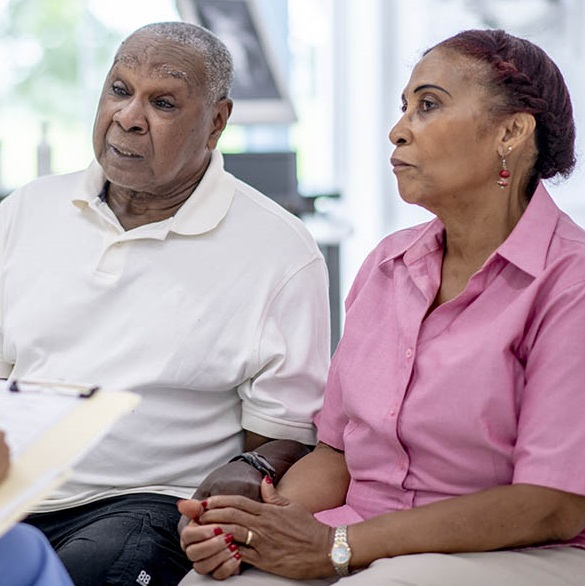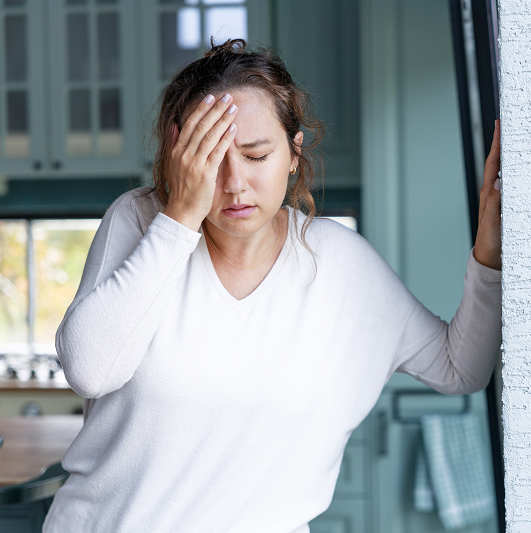Four Brain-Building Activities to Boost Attention and Focus After a Stroke

May 15, 2025
After a stroke, it can be hard to focus or pay attention. You may be easily distracted. Although these mental challenges are not unusual, there are ways to overcome them.
Monique Tremaine, Ph.D., director of neuropsychology and the cognitive rehabilitation program at JFK Johnson Rehabilitation Institute,explains four ways to retrain your mind after a stroke.
How Strokes Affect Attention
During a stroke, a blood clot or hemorrhage can block oxygen from reaching your brain for some time. When your brain doesn’t have oxygen, its cells can die. The loss of brain cells can make thinking, focusing and remembering difficult.
“Strokes that occur on the right side of the brain tend to cause the most attention problems,” Dr. Tremaine says. “But, any type of stroke can cause problems with attention because strokes affect the overall workings of the brain.”
At-Home Strategies to Improve Focus and Attention After a Stroke
Some people who’ve had a stroke may benefit from an outpatient rehabilitation program. There, they can work with physical, occupational and speech therapists and neuropsychologists. But there are ways to promote stroke recovery at home on your own, too.
1. Practicing Mindfulness
Dr. Tremaine says mindfulness activities are a “tried and true” way to boost awareness. Mindfulness refers to focusing on the present.
You can find mindfulness tools everywhere, from apps to books to in-person or virtual classes. “We have a whole mindfulness module in our cognitive rehabilitation program that’s guided by a neuropsychologist,” Dr. Tremaine says. “Mindfulness can be a tricky concept for people to grasp at first.”
- To get started with mindfulness, try sitting somewhere without distractions.
- See if you can focus only on the present.
- If your mind wanders to the past or future, pause and regain your focus.
- Try not to judge yourself for the distraction.
- Keep practicing, and increase the amount of time you focus.
2. Meditating
A daily basic meditation and relaxation practice primes your brain to be more attentive and relaxed. This is especially helpful when you’re faced with challenging situations, Dr. Tremaine says.
“When you recognize you’re making mistakes and panic, daily meditation or relaxation practice will help you calm down those reactions, so you can better handle them in the moment,” says Dr. Tremaine.
If you’ve never meditated, try a simple body scan meditation. Follow these steps:
- Find a quiet, comfortable space. You can listen to natural sounds, like nature or calming instrumental music.
- Close your eyes and focus on the feeling of your breathing.
- Next, try to focus on the feeling in each part of your body, starting with your toes and working your way up to your head.
- If you get distracted or find yourself thinking about something other than the feelings in your body, gently refocus and forgive yourself for the lapse.
- Once you’ve completed your body scan, slowly open your eyes and stand up.
3. Playing Games
Playing games, especially those that rely on memory and concentration, like card games, is a good way to enhance attention, Dr. Tremaine says. There are apps, too, such as Luminosity, with cognitive exercises that pinpoint areas that you need to work on and allow you to track your progress.
4. Continuing Current Hobbies
If physically able, drawing and cooking can be great activities that promote attention in stroke recovery. Stick to hobbies that can be done safely and that you had the skill to do before your stroke.
“Focus on doing things you enjoy, but adjust them to a level that makes sense for your new abilities.” If you love doing 1,500-piece jigsaw puzzles, scale it back to 100. If you love to tinker, start with small tabletop projects. Special tools to improve attention are great but not necessary,” she says. “It really is about individually tailoring and modifying things.”
Next Steps & Resources
- Meet our sources: Monique Tremaine, Ph.D.
- Make an appointment with a cognitive rehabilitation specialist near you or call 800-822-8905.
- Learn more about physical rehabilitation and physical therapy at Hackensack Meridian Health.
The material provided through HealthU is intended to be used as general information only and should not replace the advice of your physician. Always consult your physician for individual care.





